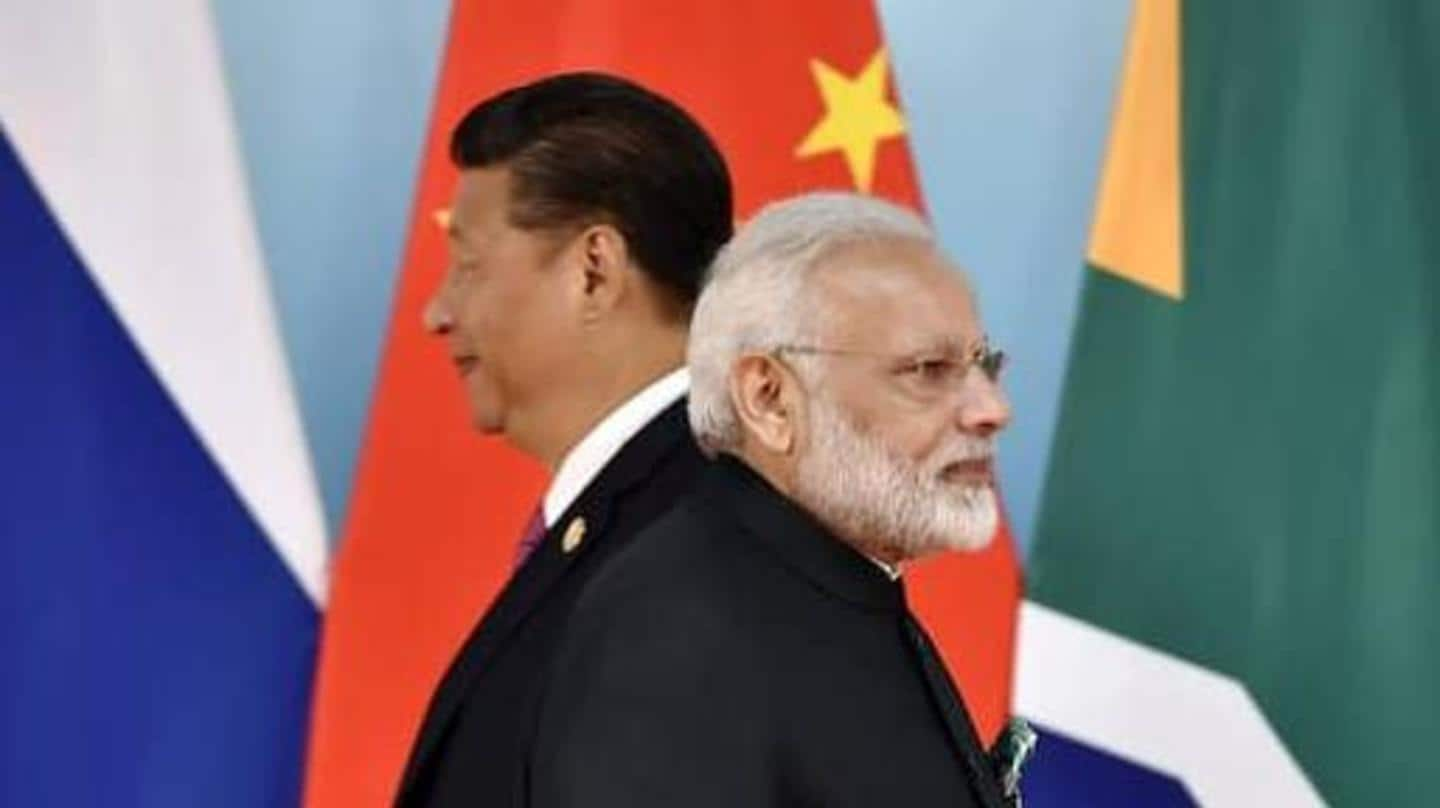India says it never accepted China's 1959 interpretation of LAC
What's the story
India on Tuesday reacted to China's claim that it abides by the 1959 interpretation of the Indo-China border, the Line of Actual Control (LAC).
The Ministry of External Affairs said India has never accepted the "unilaterally defined" 1959 LAC, adding that its position in the matter has been consistent.
The development comes amid a months-long border dispute between the two nations in Ladakh.
Quote
'India never accepted so-called unilaterally defined 1959 LAC'
Reacting to China's LAC perception, MEA spokesperson Anurag Srivastava said on Tuesday, "India has never accepted the so-called unilaterally defined 1959 Line of Actual Control (LAC). This position has been consistent and well known, including to the Chinese side."
Quote
'China's insistence contrary to its past solemn commitments'
Srivastava said that India and China have "committed to clarification and confirmation of the LAC to reach a common understanding of the alignment of the LAC" under several bilateral agreements.
He added, "Therefore, the insistence now of the Chinese side that there is only one LAC is contrary to the solemn commitments made by China in these agreements."
Agreements
India blamed China for lack of clarification over LAC
The agreements mentioned include the 1993 Agreement on Maintenance of Peace and Tranquillity along the LAC; the 1996 Agreement on Confidence Building Measures (CBMs) in the military field; the 2005 Protocol on Implementation of CBMs; and the 2005 Agreement on Political Parameters and Guiding Principles for Settlement of the India-China Boundary Question.
Srivastava blamed China for the lack of progress in clarifying the LAC.
Quote
'China did not show willingness to clarify LAC'
Srivastava said, "In fact, the two sides had engaged in an exercise to clarify and confirm the LAC up to 2003, but this process could not proceed further as the Chinese side did not show a willingness to pursue it."
Context
China said it abides by 1959 LAC
The Chinese Foreign Ministry had said in a statement to Hindustan Times, "China-India border LAC is very clear, that is the LAC on November 7, 1959. China announced it in the 1950s, and the international community including India, is also clear about it."
"The key to disengagement between the two armies is India's withdrawal of all illegal cross-border personnel and equipment," it said.
Information
1959 LAC was proposed by China's Premier Zhou Enlai
The 1959 LAC was proposed by China's Premier Zhou Enlai to Indian Prime Minister Jawaharlal Nehru. However, New Delhi has consistently rejected this stand on the Indo-China border ever since. This is the first time China has clarified its stand on the LAC.
Details
China had committed to abiding by existing agreements: India
Srivastava also pointed out that China has repeatedly held that the issue must be resolved on the basis of existing agreements.
Even during an agreement between MEA S Jaishankar and his Chinese counterpart Wang Yi—reached during talks in Moscow on the margins of a Shanghai Cooperation Organisation (SCO) meeting earlier this month—China "reiterated its commitment to abide by all the existing agreements".
Quote
'Expect China to sincerely and faithfully abide by all agreements'
Srivastava went on to add, "We, therefore, expect that the Chinese side will sincerely and faithfully abide by all agreements and understandings in their entirety and refrain from advancing an untenable unilateral interpretation of the LAC."
History
India-China engaged in border standoff since early-May
India and China have been engaged in a border standoff since early-May along the LAC in Ladakh.
The row took a turn for the worse when a mid-June clash in Galwan Valley led to the martyrdom of 20 Indian soldiers and a disputed number of Chinese troops.
The two sides have since held talks on military and diplomatic levels, but the situation remains tense.
